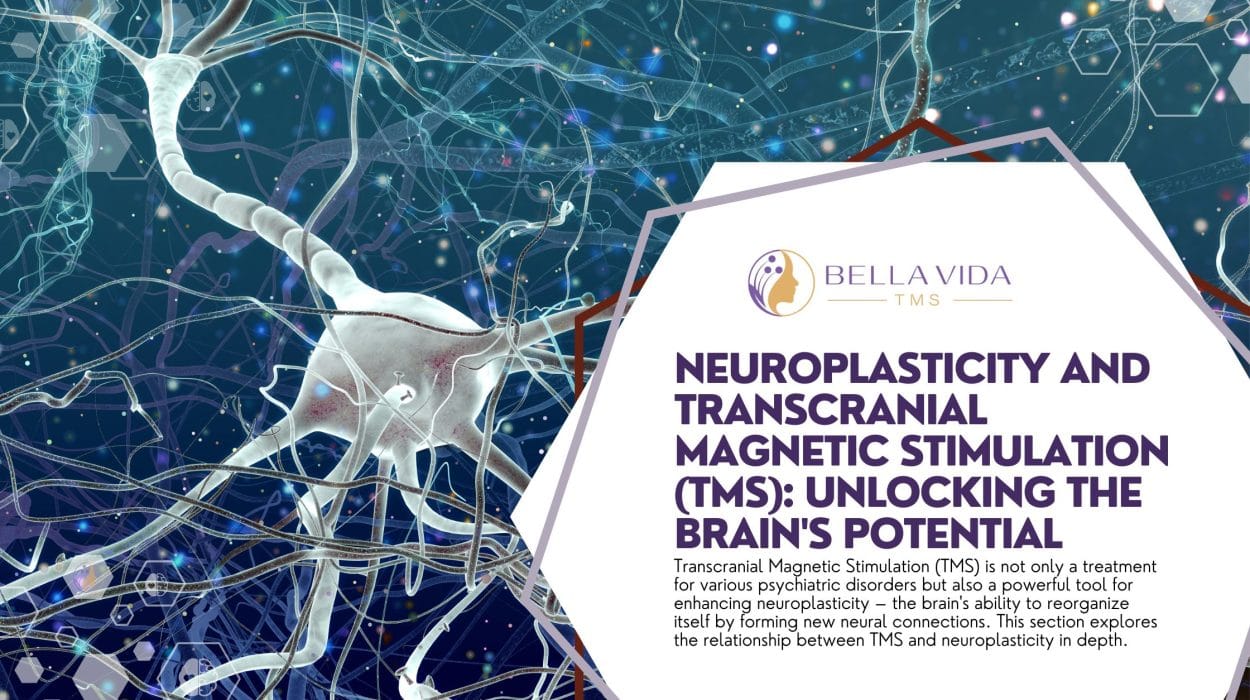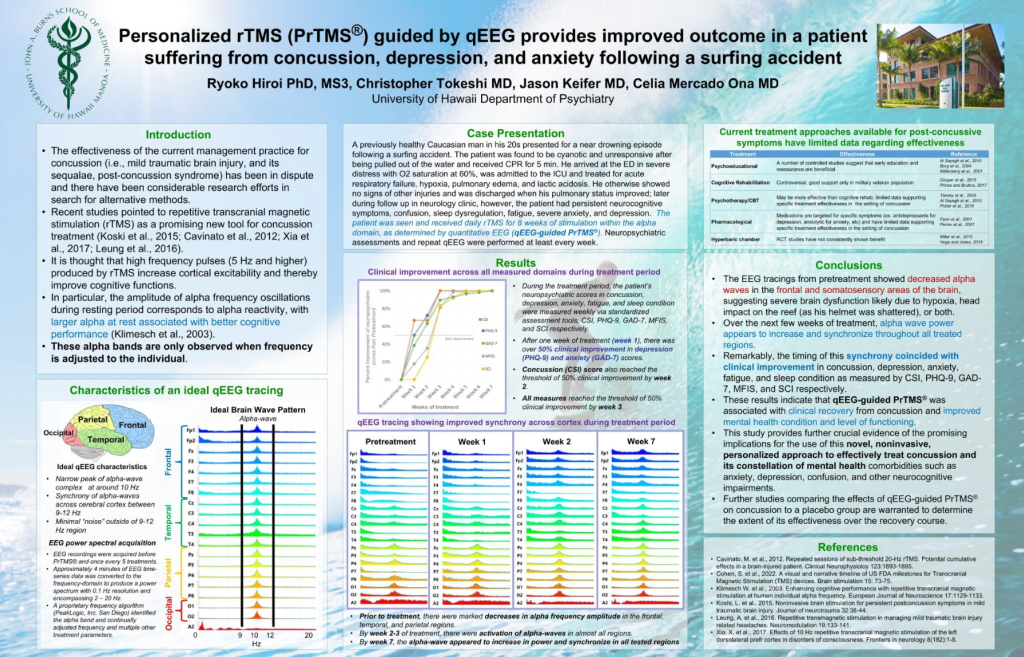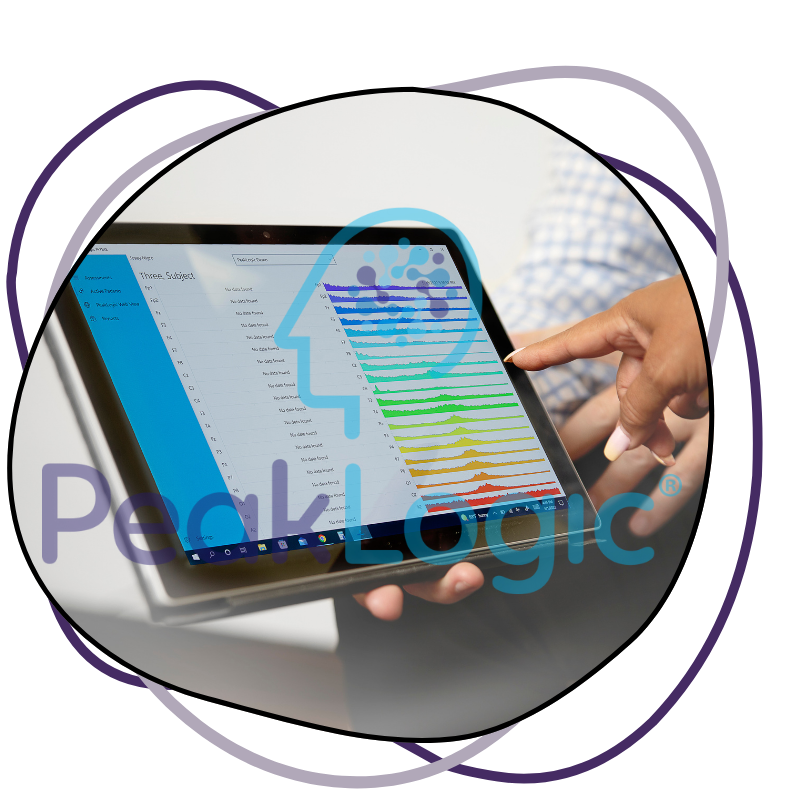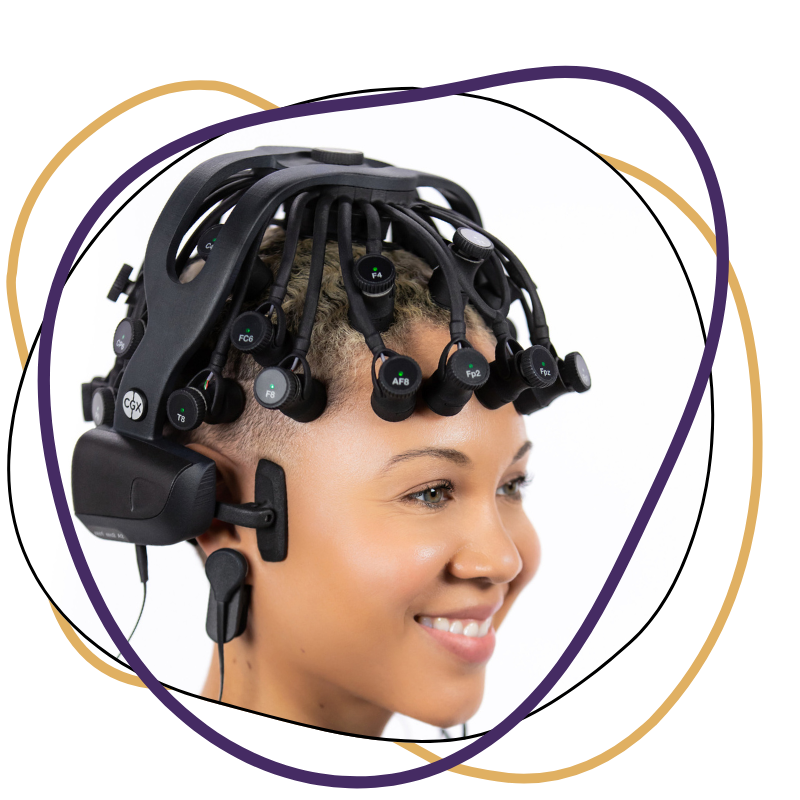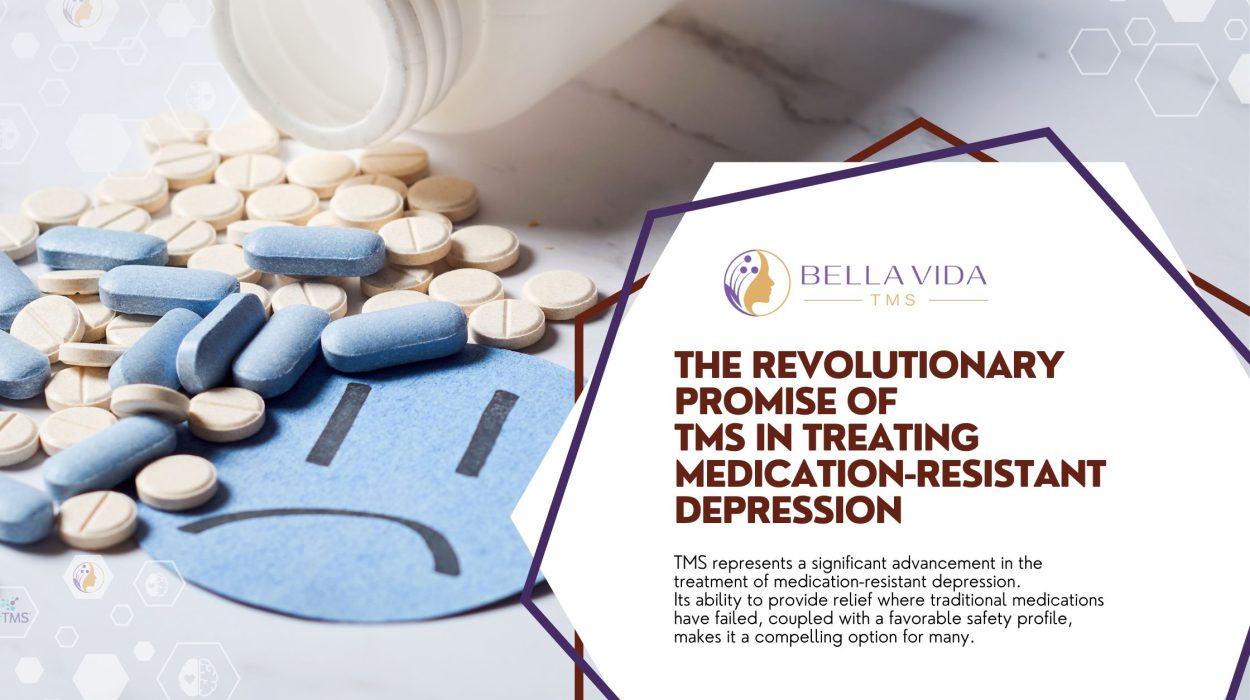
Brain Arrhythmia
Target the Source, Not Just the Symptoms.

Understanding Brain Arrhythmia and Its Impact on Mental Health
 Brain arrhythmia refers to irregularities or imbalances in the brain’s electrical activity—much like a heart arrhythmia, but affecting the central nervous system. These irregular brainwave patterns can interfere with the brain’s ability to communicate efficiently, leading to a wide range of mental health challenges. According to research from PeakLogic and the developers of PrTMS®, disruptions in brain rhythm have been linked to depression, anxiety, PTSD, ADHD, insomnia, and cognitive decline. Rather than being isolated issues, many of these conditions may share a common root cause: unstable or dysregulated brainwave activity.
Brain arrhythmia refers to irregularities or imbalances in the brain’s electrical activity—much like a heart arrhythmia, but affecting the central nervous system. These irregular brainwave patterns can interfere with the brain’s ability to communicate efficiently, leading to a wide range of mental health challenges. According to research from PeakLogic and the developers of PrTMS®, disruptions in brain rhythm have been linked to depression, anxiety, PTSD, ADHD, insomnia, and cognitive decline. Rather than being isolated issues, many of these conditions may share a common root cause: unstable or dysregulated brainwave activity.
Our brains function through a delicate balance of electrical signals. When that rhythm is thrown off—due to genetics, stress, trauma, or environmental factors—it can affect everything from mood and focus to memory and sleep. Brain arrhythmia may not be widely recognized outside of neuroscience circles, but it plays a critical role in mental well-being. Symptoms often manifest subtly at first—difficulty concentrating, poor sleep, emotional instability—but can worsen over time if the underlying rhythm isn’t corrected.
At Bella Vida TMS, we offer PrTMS (Personalized Repetitive Transcranial Magnetic Stimulation), a therapy that uses EEG brain mapping to detect brain arrhythmias and develop a customized TMS protocol to help realign brainwave activity. This targeted, non-invasive approach focuses on treating the source of dysfunction, rather than masking symptoms with medication. By identifying and correcting brain arrhythmias, we help the brain return to its natural rhythm—improving mood, cognition, and overall quality of life. If you’ve been struggling with treatment-resistant mental health conditions, exploring your brain’s rhythm could be the key to long-lasting relief.
Download Your Free Brain Arrythmia Whitepaper
"*" indicates required fields

Real Stories, Real Healing, Real Mental Health Treatment
Over 15 Years of TMS Research
Learn more about TMS Therapy and the impact it has on mental health disorder treatments
- 2024 | Pilot Study of Personalized Transcranial Magnetic Stimulation with Spectral Electroencephalogram Analyses for Assessing and Treating Persons with Autism
- 2024 | Personalized repetitive transcranial magnetic stimulation guided by the spectral electroencephalogram may enhance and democratize therapy for autism spectrum disorder
- 2023 | Pilot Clinical Data Showing Positive Therapeutic Outcomes for Concussion: Personalized repetitive transcranial magnetic stimulation (PrTMS®) guided by EEG spectra.
- 2023 | Personalized repetitive transcranial magnetic stimulation (PrTMS®) for post-traumatic stress disorder (PTSD) in military combat veterans
Healing is a priority
What DoesTMS Treat?

Personalized TMS therapy tailors magnetic stimulation to individual brain patterns, enhancing treatment for Major Depressive Disorder.
Personalized TMS therapy treats Obsessive-Compulsive Disorder by targeting and modulating hyperactive brain circuits involved in OCD, helping to reduce symptoms and improve mental health.
Personalized TMS therapy targets specific brain regions to modulate activity, helping to alleviate PTSD symptoms effectively.
Personalized TMS therapy targets brain circuits associated with anxiety, helping to reduce symptoms and improve well-being.
TMS therapy targets specific brain regions to enhance neural connectivity, aiding communication skills in nonverbal autism.
TMS therapy targets brain areas to improve focus and attention, helping alleviate symptoms in people with ADD.
Substance use disorder can lead to health issues, addiction, impaired judgment, and severe impacts on personal and social life.
Want to Know More
Advanced Equiptment for Personalized Care




